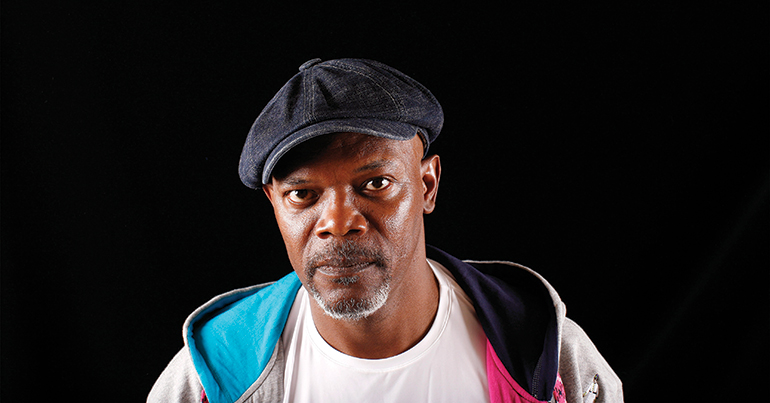Capturing everything that happened in 2017 in just one story is a herculean task that it’s doubtful if anyone would be able to do justice to without the insertion of several footnotes and dedicating at least a few thousand words.
But in an attempt to showcase some of the year’s biggest and most important reads, we’ve decided to reshare some of the stories that Southeast Asia Globe reported in 2017, choosing only the ones that were the most widely read by our readers.
Here, you’ll be able to get a sense of what 2017 looked like through the lens of stories written and reported by Southeast Asia Globe.
Shop ’til they drop: Singapore’s shopping centres struggling to survive
The most read story of 2017 was a feature written on the all-time high vacancy rates of Singapore’s glamorous shopping malls. In this story, we explored whether or not the city-state might be losing its lustre as the region’s shopping hub. One of the possible causes behind Singapore losing its status as Southeast Asia’s shopping capital was the astronomically high rental cost for retail space; for instance, when skimming real estate websites, you can find asking prices that reach as high as $11.22 (SGD16) per square-foot and beyond.
Thai King shot at by two boys with BB guns: Reports
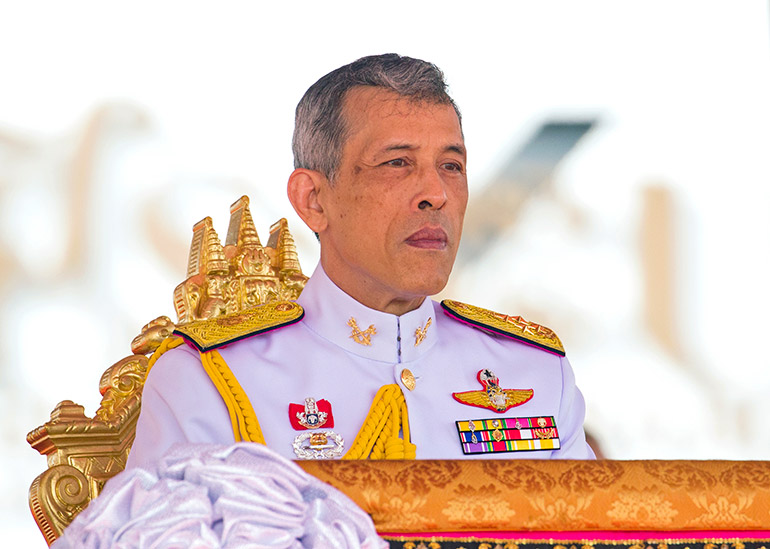
Close behind a story about shopping malls was this viral story about the Thai King being shot by air guns while cycling late at night in Germany. Two boys were said to have shot King Maha Vajiralongkorn of Thailand in the back with BB guns in the German state of Bavaria with the incident coinciding on World Naked Bike Riding day.
Phnom Penh, “a city of garbage”
In one of the most popular deep dives we did for the year, Southeast Asia Globe put the sole garbage collection company responsible for keeping Cambodia’s capital clean under the microscope and asked, will they be able to turn things around for this budding modern metropolis that has come to be known as a ‘city of garbage’?
How Aung San Suu Kyi is wasting Myanmar’s economic potential
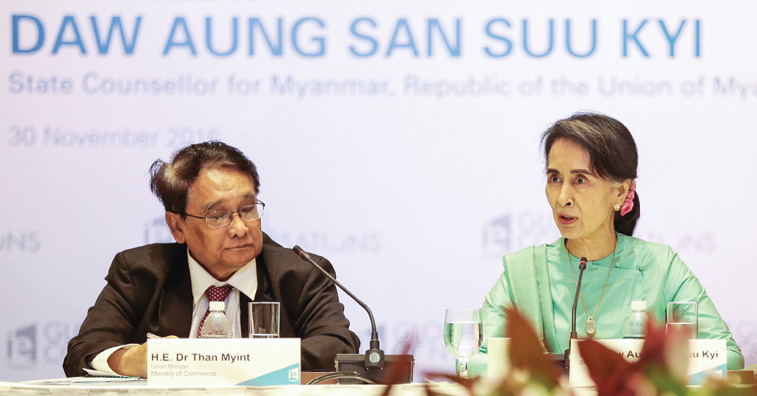
It has been a whirlwind year for Aung San Suu Kyi’s Myanmar, particularly with respect to the ongoing Rohingya crisis that heated up again in late August. But the story that stood out with our readers for 2017 was an analysis written at the beginning of the year that looked at how Suu Kyi’s government has been unable to prove that the economy is in safe hands after economic sanctions were lifted on the country.
Cambodia Daily publishers banned from leaving the country

A lot of stories covering the closure of the Kingdom’s Cambodia Daily garnered the attention of our readers, but the one that stood out above the rest was our coverage of the Cambodian newspaper’s publishers being banned from leaving the country. The Daily was forced to shut its doors in early September over an unpaid tax bill and then the General Department of Taxation announced that the general manager would not be permitted to leave the country unless the owners paid the $6.3m in alleged arrears.
‘War on drugs’ Duterte promises to kill his son if he is proven to be caught in drug cartel
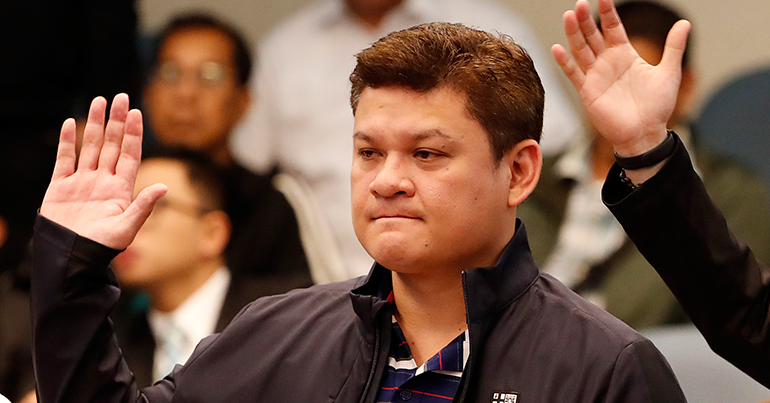
Philippine President Rodrigo Duterte has been making headlines in 2017 nearly as often as his equally controversial US counterpart, both of whom like to come out in support of each other’s often-criticised administrations. In this story about Duterte’s eldest child, we put a spotlight on how Paolo Duterte has found himself at the heart of a scandal that could force the first family of the Philippines from power.
New Facebook account turns tables on Cambodia’s ruling party with apparently leaked photos of first family
If there were a phrase that could be said to sum up 2017, it would without contestation probably be ‘fake news’. There were a number of viral stories that circulated across the region that had some element of fake news in it, and for Cambodia the one that proved to be the most popular was a scandalous internet leak of images on a Facebook page that appeared to show shady business dealings, intimate moments and curious selfies of Prime Minister Hun Sen and his family. The anonymous Facebook page that released the photos of Hun Sen’s family was part of an escalating social media battle that seems to have become commonplace in Cambodian politics, though often aimed in the opposite direction.
China’s construction bubble may leave Cambodia’s next generation without a home

In a four-part series that analysed the fours pillars of Cambodia’s economy, including manufacturing, agriculture, tourism and construction, the feature that explored an industry that overtook agriculture and tourism as the second-largest driver of growth in 2014 turned out to be one of the most widely read stories of the year. Despite the fact that the construction industry in Cambodia has been enjoying some incredible growth in recent years, there are concerns over the quality of some of these projects and an over-reliance on Chinese investment.
Vietnam stops drilling in South China Sea after threats from Beijing
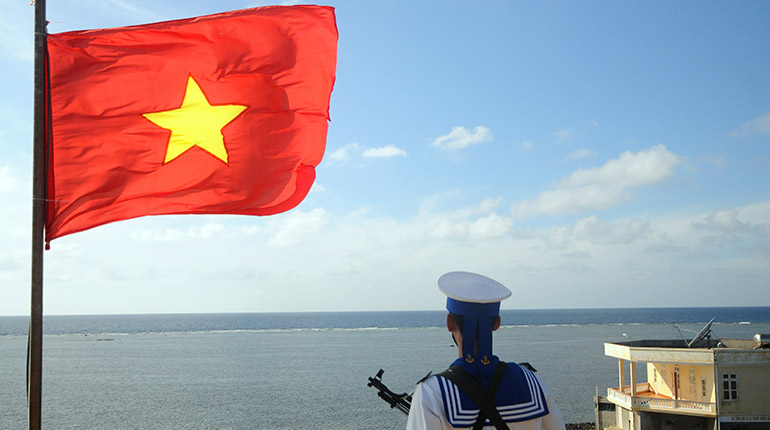
An ever-contentious issue, which was also seen to dominate the talks at this year’s Asia-Pacific Economic Cooperation (Apec) Summit in Vietnam, is the hot topic of the South China Sea. But before this past fall’s Apec meetings had even kicked off, we shared a story on the threats Vietnam was receiving from China about a private company who was gas-drilling in an area of sea 400km of the country’s southeast coast. Vietnam ordered the company to halt their activity in the contested area immediately, as China said if they didn’t comply they would attack their bases in the Spratly Islands.
The big interview: Samuel L. Jackson on his newfound love of Vietnam
Rounding out our list of the best stories from 2017 was a profile with a bit of a lighter tone than the rest of the stories crowding near the top. In an interview with Samuel L. Jackson, the Hollywood icon spoke to us about his preference for villains, being an “uninteresting guy” and why Vietnam is his favourite place to film. “It’s really awesome. In the morning, when I was going to work at, like, 5am, I’d see 600 kids on bicycles going to school in their uniforms or walking on the road and going to school, and getting it done.”



